
The World Saxophone Quartet is an American jazz ensemble founded in 1977, incorporating elements of free jazz, R&B, funk and South African jazz into their music.

Julius Arthur Hemphill was a jazz composer and saxophone player. He performed mainly on alto saxophone, less often on soprano and tenor saxophones and flute.
The Black Artists Group (BAG) was a multidisciplinary arts collective that existed in St. Louis, Missouri, from 1968 to 1972. BAG is known for the convergence of free jazz and experimental theater.

Abdul Wadud was an American cellist known for his work in jazz and classical settings. Jazz musician and fellow composer Tomeka Reid hailed Abdul Wadud's "Camille" in a 2020 feature in the New York Times on music that one could play to make friends fall in love with the cello.
Baikida Carroll is an American jazz trumpeter.
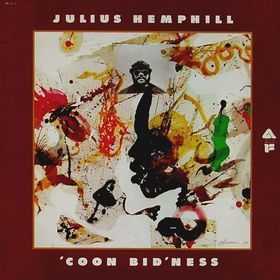
Coon Bid'ness is an album released by Julius Hemphill in 1975 on Arista featuring performances by Hemphill, Baikida Carroll, Abdul Wadud, Phillip Wilson, Arthur Blythe, Barry Altschul and Daniel Zebulon. The final track, "The Hard Blues," was recorded at the same recording session as Hemphill's debut album Dogon A.D.. After Hemphill's death in 1995, Freedom Records re-released the album as a CD under the name Reflections.
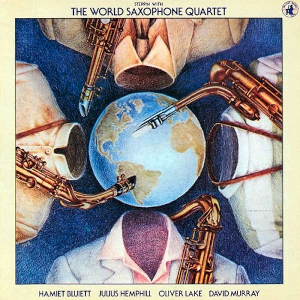
Steppin' with the World Saxophone Quartet is an album by the jazz group the World Saxophone Quartet released on the Italian Black Saint label in 1979. The album features performances by Hamiet Bluiett, Julius Hemphill, Oliver Lake and David Murray.

Revue is an album by the jazz group the World Saxophone Quartet released on the Italian Black Saint label. The album features performances and compositions by Hamiet Bluiett, Julius Hemphill, Oliver Lake and David Murray.

W.S.Q. is a 1980 album by the jazz group the World Saxophone Quartet released on the Italian Black Saint label. The album features performances and compositions by Hamiet Bluiett, Julius Hemphill, Oliver Lake and David Murray.

Live in Zurich is an album by the jazz group the World Saxophone Quartet recorded in 1981 and released on the Italian Black Saint label.

Live at Brooklyn Academy of Music is a live album by the jazz group the World Saxophone Quartet released on the Italian Black Saint label.
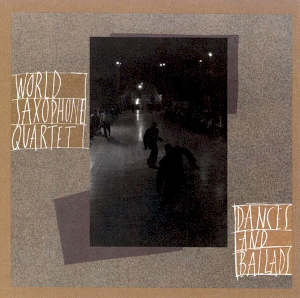
Dances and Ballads is an album by the jazz group the World Saxophone Quartet, released in 1988 and featuring performances by Hamiet Bluiett, Julius Hemphill, Oliver Lake and David Murray.
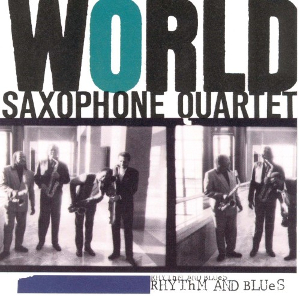
Rhythm and Blues is an album by the jazz group the World Saxophone Quartet released on the Elektra label. The album features performances by Hamiet Bluiett, Julius Hemphill, Oliver Lake and David Murray and was first released in 1989.

Requiem for Julius is an album by the jazz group the World Saxophone Quartet released by the Justin Time label. The album features performances by Hamiet Bluiett, John Purcell, Oliver Lake and David Murray and is dedicated to the band's founding member Julius Hemphill.

Metamorphosis is an album by the jazz group the World Saxophone Quartet released in 1990 on the Elektra/Nonesuch label and features performances by Hamiet Bluiett, Arthur Blythe, Oliver Lake and David Murray with Chief Bey, Melvin Gibbs and Mor Thiam. It was the first album recorded by the group after the departure of foundation member Julius Hemphill and their first to feature additional musicians.

Four Now is an album by the jazz group the World Saxophone Quartet, released by the Canadian Justin Time label. The album features performances by Hamiet Bluiett, John Purcell, Oliver Lake and David Murray, with guests Chief Bey, Mor Thiam, and Mar Gueye on African drums.
Phillip Sanford Wilson was an American blues and jazz drummer, a founding member of the Art Ensemble of Chicago, and a member of the Paul Butterfield Blues Band.

Raw Materials and Residuals is an album by jazz saxophonist Julius Hemphill featuring cellist Abdul Wadud and percussionist Don Moye recorded in 1977 for the Italian Black Saint label.

Wildflowers: The New York Loft Jazz Sessions is a series of five albums recorded May 14–23, 1976 at Studio Rivbea, a loft jazz space in New York City, run by Sam Rivers and his wife Bea. The albums include performances by groups led by musicians such as Hamiet Bluiett, Anthony Braxton, Marion Brown, Dave Burrell, Andrew Cyrille, Oliver Lake, Jimmy Lyons, Ken McIntyre, Kalaparusha Maurice McIntyre, Roscoe Mitchell, David Murray, Sunny Murray, Sam Rivers, Leo Smith, Henry Threadgill, and Randy Weston. The recordings were originally released in 1977 on the Douglas and Casablanca labels as five separate LPs, and were reissued in 1999 by Knit Classics as a 3-CD set.
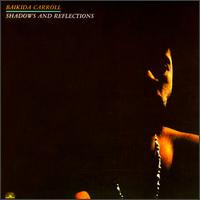
Shadows and Reflections is an album by trumpeter and composer Baikida Carroll. It was recorded on January 13 and 20, 1982, at Sound House Studio in Newburgh, New York, and was released on vinyl later that year by Soul Note. On the album, Carroll is joined by saxophonist Julius Hemphill, pianist Anthony Davis, double bassist Dave Holland, and drummer Pheeroan akLaff.

















